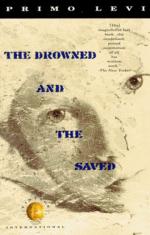|
This section contains 342 words (approx. 1 page at 400 words per page) |

|
Chapter 4, Communicating Summary and Analysis
When people wish to communicate, they usually find ways, but in the 1970s, "incommunicability" is proposed: humans are monads capable only of truncated messages destined to be misunderstood. Discourse is seen as a veil over existential silence. This theory is biologically and socially false: humans speak; non-humans do not. Refusing to communicate brings angst. Survivors experience this in a particular way. When people complain about cold, hunger, or fatigue, survivors spontaneously think, "What do you know?" but cannot get the reality across.
Tourists make a game of understanding; immigrants receive help in adjusting to cultural transplantation, but in the Lagers, prisoners who know no German fall into a world "filled with a dreadful sound and fury signifying nothing." Many survivors pick up words and fragments in unknown languages that anchor them in daily life, in the same way that...
(read more from the Chapter 4, Communicating Summary)
|
This section contains 342 words (approx. 1 page at 400 words per page) |

|




